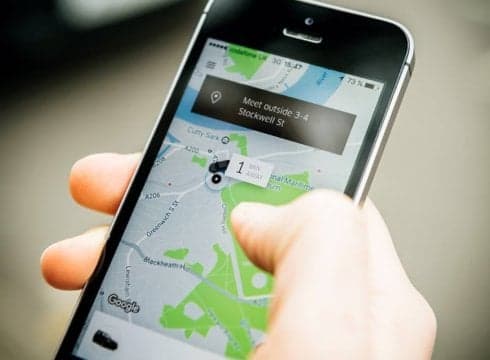Public safety issues is the major reason that prompted the proposal
The main objective is to bind the app-based cab aggregators with conditions of the licences
The authority can suspend or cancel license if operators fail to comply with the rules
Inc42 Daily Brief
Stay Ahead With Daily News & Analysis on India’s Tech & Startup Economy
The Gujarat government is reportedly considering a proposal to restrict the number of cabs run by app-based cab aggregators like Ola, Uber to 20K each wherein only one licence shall be issued to a company or an aggregator.
According to reports, public safety issues, including attacks on passengers etc is the major reason that had prompted the transport department to come up with the proposal. The main objective of Gujarat State on Demand Transportation Aggregator Rules, 2018 is to bind these app-based cab services with conditions of the licences.
Ola refused to comment on the story and response to an email sent to Uber is waited
More Details On The Proposal
The proposal is also looking at the possibilities that those services that are seeking to operate more than 10K cabs in the state, with the upper limit set at 20K, can do so after getting licence by paying a fee of $13.75K (INR 10 Lakh) and a security deposit of $34.38K (INR 25 Lakh).
Further, the state has also powered the licensing authority to suspend permits for 10 days to six months or cancel them in case the taxi operators fail to comply with these rules.
To be noted, as of a 2016 Gadget 360 report, Ola had claimed that it has a fleet of 350,000 vehicles, including government-licensed taxis and auto-rickshaws. Although exact number of cabs cannot be ascertained, in recent media statements, Ola has claimed to have 1 Mn driver partners with operations across more than 110 cities.
On the other hand, Uber (as of April 2017) is operating in 29 Indian cities and claimed to had a driver partner network of 450,000.
“The number of such cabs in Gujarat’s top four cities is pegged at 8,000-10,000,” as quoted by government and industry sources of ET.
Ola, Uber Initiatives To Sync With Regulations & Safety
At present both Ola and Uber are looking at plans to diversify their markets and offerings as well as build a healthy relationship with the driver partners as well as the state and Central governments.
Initiatives Taken By Uber
- Uber loyalty program allows its most-tenured driver partners, Uber A-ONE, in Kochi, Mumbai, Bengaluru and Chennai to have access to Priority lounges at Green Light Centres.
- In August 2017, Uber rolled out India’s first ridesharing insurance program in partnership with ICICI Lombard General Insurance. Also, Uber recently launched a first-of-its kind Gift Card, redeemable across Uber and Uber Eats, and available on Paytm and other online platforms.
- Recently, Eric Allison, Head of Aviation Programs, Uber and Nikhil Goel, Head of Product, Aviation, Uber apprised the Prime Minister of the potential of Uber Elevate, showcasing the exciting future Uber Air can bring to the region and to the world and discussed how a multi-modal mobility platform can contribute to the economy while helping cities reduce congestion and pollution.
Initiatives Taken By Ola
- Ola, has launched project ‘Guardian’, a real-time monitoring system, to further strengthen ride safety of its customers on the platform. Launched as a pilot in Bengaluru, Mumbai and Pune, the project is part of Ola’s national programme on safety, ‘Street Safe’, and is also a first for the ride-sharing industry.
- The Ola app has also been updated to include larger photos of driver partners, enabling customers to verify their authenticity and report impersonators.
- Taking a step further to curb driver impersonation, Ola will initiate offline audit checks at transport hubs including airports, railway stations and bus stands. The trained audit team will not only authenticate driver partners but also inspect the state of the car.
- Having begun the initiative at Hyderabad and Bangalore airports, offline audit checks will be rolled out to more transport hubs across India in a phased manner.
Since the growth of app-based cab aggregators in India, the tussle between the government, kaali-peeli taxis, existing cab aggregators charging higher prices per kilometer and players like Ola, Uber have increased. From strikes to state government interventions in pricing plus launch of state’s own app-based cab aggregating services (such as Namma TYGR) have been in place.
The recent proposal in consideration by Gujarat government is in line to bring a concrete solution to this ongoing tussle only. However, by putting a cap on the number of cabs in the state, and creating a dearth of Ola & Uber cabs, will the state government not be forcing the users to adopt different options?
[The development was reported by ET]
{{#name}}{{name}}{{/name}}{{^name}}-{{/name}}
{{#description}}{{description}}...{{/description}}{{^description}}-{{/description}}
Note: We at Inc42 take our ethics very seriously. More information about it can be found here.


